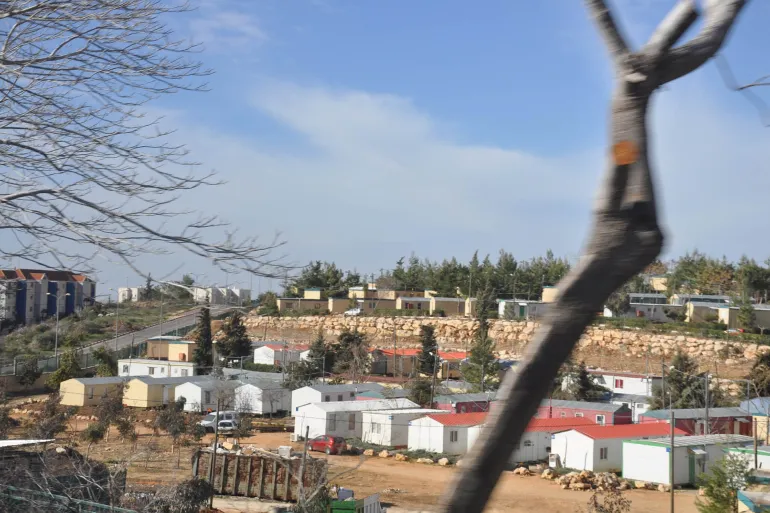Analysts and researchers are warning that Israel’s controversial E1 Settlement Project represents one of the most dangerous phases of settlement expansion.
They argue that the plan not only threatens the future of a viable Palestinian state but also risks destabilizing the broader Arab region.
What is the E1 Settlement Project?
The E1 project, short for East 1, is a large-scale Israeli settlement expansion plan east of Jerusalem.
It covers around 12 square kilometers.
E1 Settlement Project aims to link the settlement of Ma’ale Adumim with Jerusalem.
Once implemented, it will effectively cut the West Bank into disconnected enclaves, destroying the geographical continuity needed for a Palestinian state.
Israeli Finance Minister Bezalel Smotrich recently defended the project.
Calling the West Bank part of Israel by “divine promise.”
He also revealed plans to seize thousands of Palestinian-owned dunums and invest billions of shekels to house up to one million new settlers.
International Reactions
The E1 Settlement Project has sparked widespread condemnation.
- Brazil strongly denounced the project, warning it would sever East Jerusalem from the rest of the West Bank, undermine international peace efforts, and violate international law.
- Egypt and Jordan also criticized Israel’s actions, describing them as a dangerous provocation that threatens regional stability.
- The International Court of Justice (ICJ) reaffirmed that Israel is obligated to halt settlement expansion immediately, emphasizing the Palestinians’ right to establish an independent state.

A “Creeping Annexation”
Experts highlight that the E1 Settlement Project, which includes more than 3,400 housing units, will double the size of Ma’ale Adumim and accelerate the full annexation of Jerusalem.
Political analyst Areeb al-Rantawi described the move as part of Israel’s strategy of “creeping annexation,” which effectively ends any prospect of a two-state solution.
He stressed that the plan reflects Israel’s disregard for international pressure and could push toward further displacement of Palestinians, potentially affecting Jordan and Egypt as neighboring states.
A Biblical Vision of “Greater Israel”
Researchers also argue that the project embodies a religious-nationalist vision promoted by Prime Minister Benjamin Netanyahu and his right-wing allies.
According to political expert Nasser al-Hidmi, the plan is tied to the concept of “Greater Jerusalem”, which Israeli leaders view as the heart of a larger “Greater Israel.”
By isolating Palestinian towns such as Anata, al-Issawiya, al-Eizariya, Abu Dis, and az-Za’ayyem, the settlement will enforce demographic change in favor of Israelis.
While confining Palestinians to fragmented enclaves.
Implications for Palestine and the Region
The E1 project threatens to:
- Divide the West Bank into northern and southern parts.
- Sever East Jerusalem from its Palestinian surroundings.
- Eliminate the geographic basis for a sovereign Palestinian state.
- Escalate regional instability, with possible spillover effects on Jordan, Egypt, and beyond.
The E1 settlement project is more than just a construction plan.
It is a geopolitical strategy that undermines international law, threatens regional stability, and erases the possibility of a Palestinian state.
Despite mounting international condemnation, Israeli leaders remain committed to implementing the project, framing it as essential to the so-called security and sovereignty of Israel.








